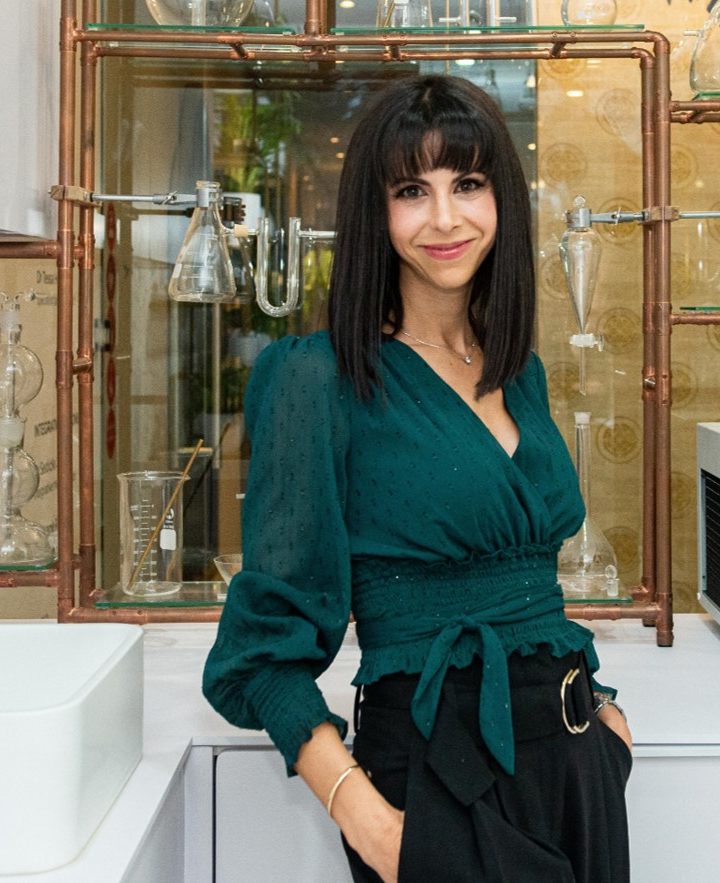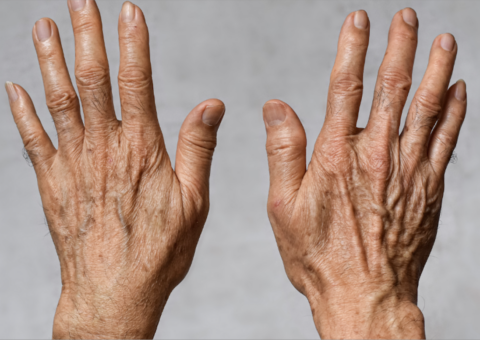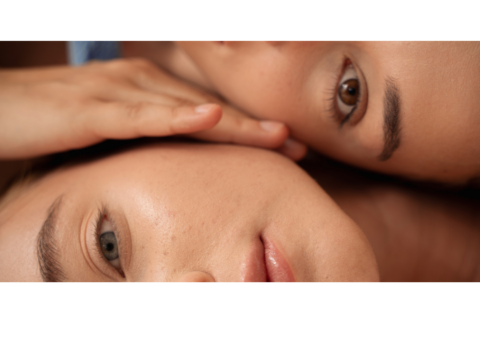
It’s time to crack open the egg – what’s in it for us?
Beyond high-quality protein, an egg contains a wide-variety of essential nutrients and bioactive compounds that can beneficially impact skin health. Here are some of the most abundant, bioavailable and anti-inflammatory components that may find your way into your morning’s breakie:
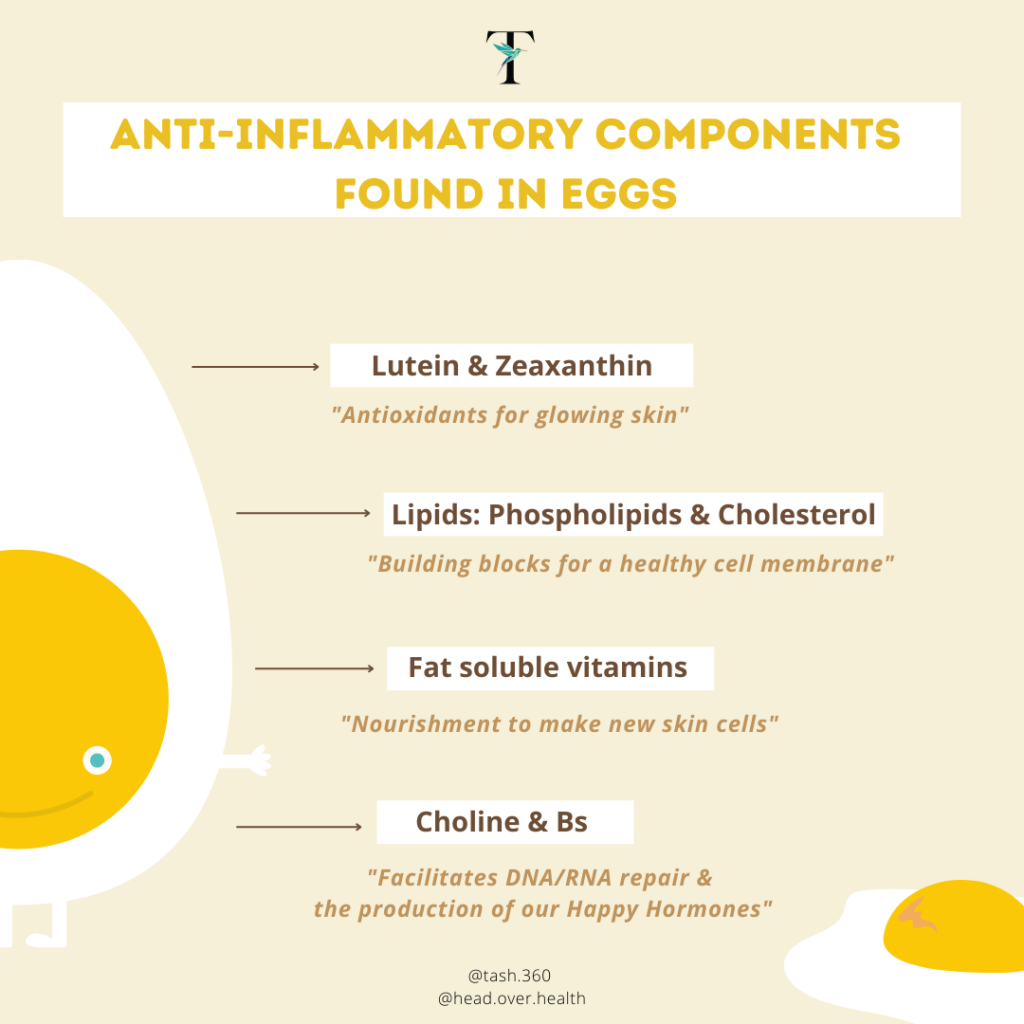
![]() Lutein & Zeaxanthin
Lutein & Zeaxanthin
Antioxidants are foundational for any glowing skin; as they act to defend the skin against free-radical damage. ‘An egg a day’ may just keep your dermatologist away as it provides your body with skin-loving antioxidants, known as carotenoids. Carotenoids aren’t only there to brighten up your plate (giving egg yolk it’s orange colour), but brighten up your skin too by protecting your skin from the sun’s damaging UV rays, preventing premature ageing, and ‘dulling down’ inflammation induced by oxidative stress.
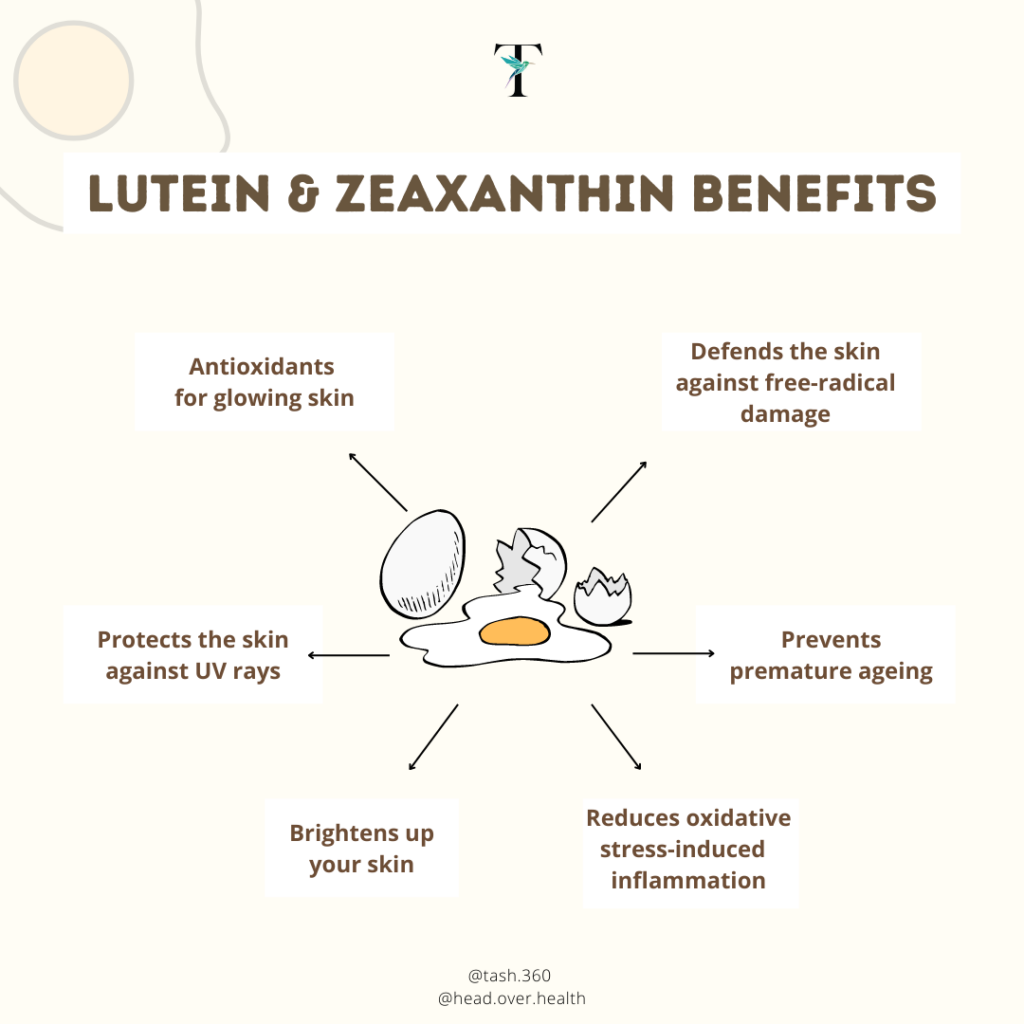
![]() Lipids: Phospholipids & Cholesterol
Lipids: Phospholipids & Cholesterol
Eggs are high in phospholipids and cholesterol, which are the main ‘building blocks’ for a healthy cell membrane (or a cell’s ‘outer’ wall). A resilient, healthy skin requires an ongoing supply of lipids to protect its barrier function, as well as retain its moisture. For ongoing skin barrier preservation and strengthening, don’t leave out the egg yolk as this is where the magic is found.
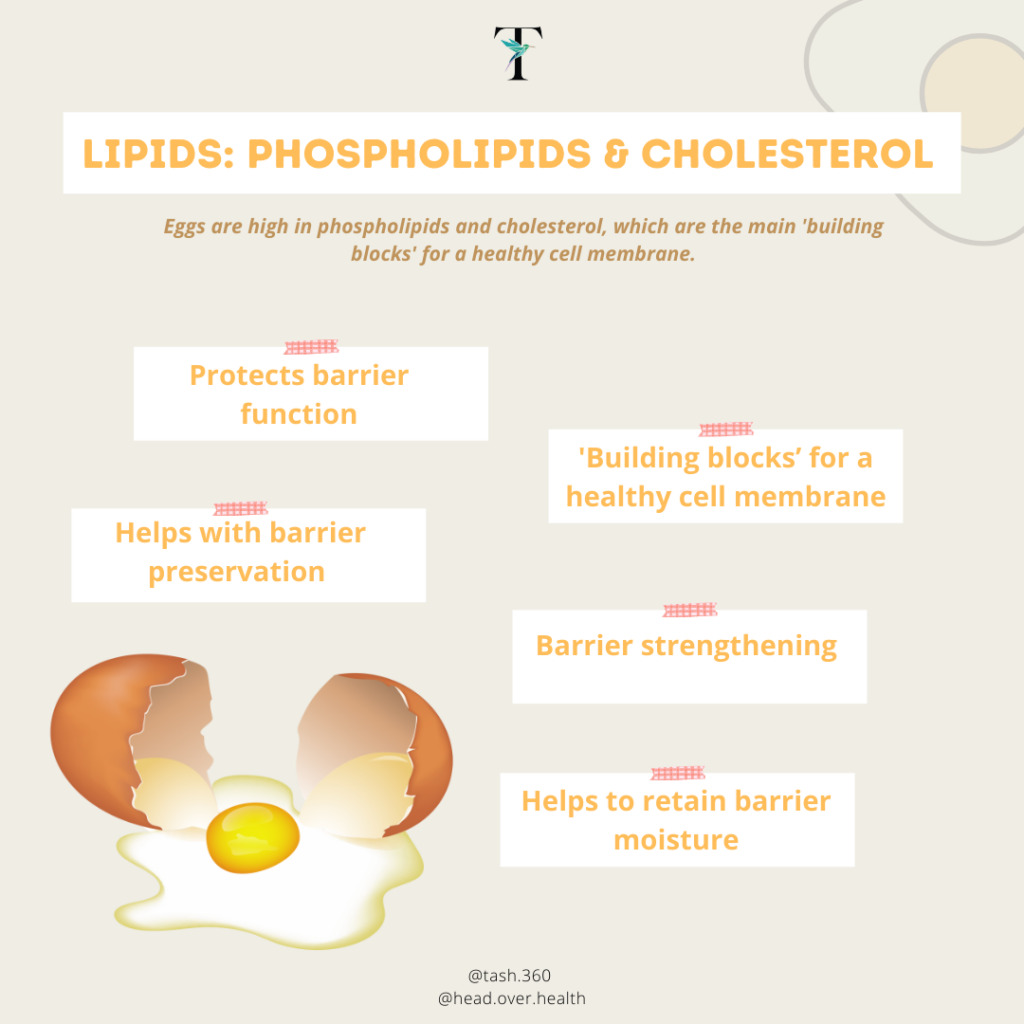
![]() Fat soluble vitamins
Fat soluble vitamins
These are fave vitamins for both defending the skin against ‘daily threats’, as well as renewing the skin by promoting cell turnover (out with the old, and in with the new!). Eggs don’t only provide a perfect dose of Vitamin A & D, but the correct forms of the nutrients too: they are found in their biologically ‘active’ forms, meaning that they can enter the cell & have therapeutic effects almost immeditely after consumption!
![]() Choline & Bs
Choline & Bs
An egg seems to have it all: it has the A; Bs & a C. Although we’re not talking about Vitamin C here, we’re talking about another miraculous ‘C’ nutrient – say hello to CHOLINE. The combination of choline & vitamin B12 is a recipe for clearer skin, as they both play a role in: DNA/ RNA repair, the production of ‘happy hormones’ (because a happy mind = a happy skin), and optimal hormone metabolism (‘processing’). Here’s a little tip for the overachievers: choose pasture-raised, organic eggs as they’re free from unwanted hormones, and are typically higher in vitamin B12 and anti-inflammatory fats!
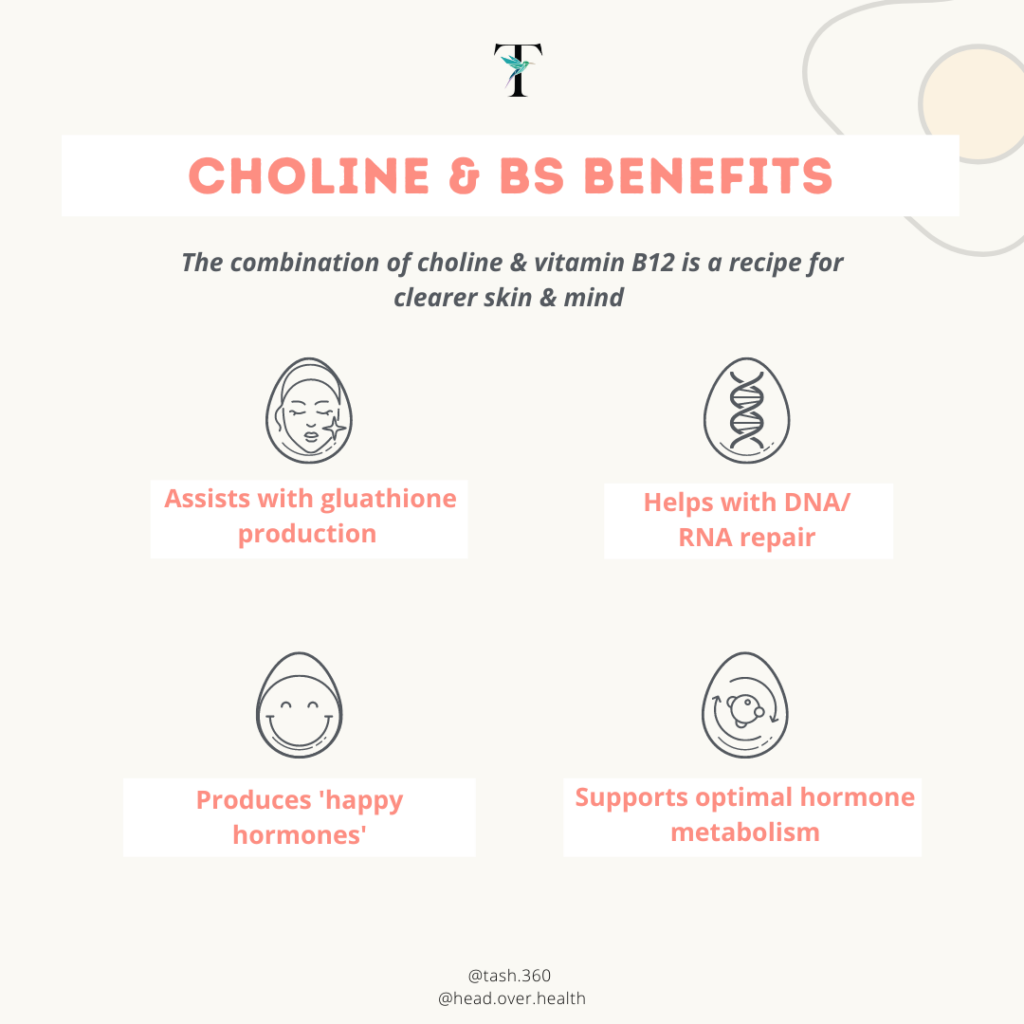
![]() Walking on eggshells – egg protein & its effects on the immune system:
Walking on eggshells – egg protein & its effects on the immune system:
Here, scientists are currently ‘walking on eggshells’, as we’re not sure where we stand on the topic of an egg’s effects on the immune system, and in turn, on inflammatory skin conditions (think acne, psoriasis, rosacea, atopic dermatitis, eczema).
We all know that egg-white is an egg-cellent source of protein (on average, 1 egg = 6g protein), which is made up of amino acids (namely: ovalbumin, ovotransferrin, ovomucin, lysozyme and avidin) that act as ‘building blocks’ for skin cells. However, there’s another side to these protein parts that are far more fascinating (and complex!):
Egg proteins have been termed as ‘biological active’, as they actually interact with the immune system! Evidence to-date suggests that the effects of egg intake on a body‘s inflammatory markers differ across populations; based on body weight, health status, genetic predispositions and the make-up of one’s gut microbiome. In some studies, egg proteins exert antimicrobial activity, and have highly beneficial activities on ‘modulating’ immunity; while in other trials, egg proteins have promoted inflammation.
Although we don’t have hard, fast evidence for excluding eggs in the context of autoimmune diseases, ‘leaky’ & compromised guts, and inflammatory health conditions; we do, however, see some of these individuals respond positively to egg-free diets in practice. Currently, the gold standard for determining an immune system’s response to eggs (for the medical people: that is, in the absence of a proven IgE mediated food allergy) lies in the implementation of a comprehensive 21-day elimination diet, with the addition of IgG-based food intolerance testing where indicated (again, for the medical people: controversy alert – not all IgG-mediated results are considered ‘true’ immune reactions).

![]() Herein lies the secret – which came first: the chicken or the egg?
Herein lies the secret – which came first: the chicken or the egg?
For those who experience adverse food reactions, specifically in response to eggs; and have been unable to note clear distinctions throughout a self-driven elimination diet; then you need to see your dietitian as various factors such as different preparation methods of eggs, the dosage and timing of egg intake, and the frequency of consumption play a role in its effect on your immunity.
Once having identified the probable effect that eggs have on your body, you will never overcome your food ‘intolerance’ without getting your gut in tip-top condition. It’s like the chicken & egg scenario: an unhappy gut sets you up for food ‘intolerances’; and a food ‘intolerance’ further compromises your gut health.
![]() Don’t put all your eggs in one basket – see your integrative Dietitian.
Don’t put all your eggs in one basket – see your integrative Dietitian.
Don’t rely on simply cutting out gluten, adding a forkful of sauerkraut, or including the latest in-supplement into your regime. ‘Gut healing’ entails a thoughtful, personalised and evidence-based program – which always requires your best effort, alongside your dietitian’s expertise.




